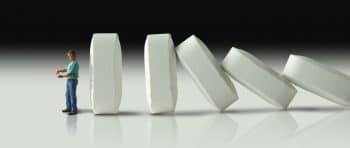Dilaudid

What Is Dilaudid?
Dilaudid is the brand name for Hydromorphone, a strong prescription Opioid used to relieve moderate-to-severe and chronic pain in patients. The drug belongs to a class of medications called Opiate analgesics and can be consumed as either a liquid or tablet and injected as a liquid solution. In pill form, Dilaudid should be taken whole and not be broken up or chewed, as this may cause too much of the drug to release at once and induce an overdose. The extended-release forms of Dilaudid are used to relieve pain in opioid-tolerant patients that is severe enough to require around-the-clock pain relief for a long period of time.
Dilaudid is a Schedule II controlled substance and is therefore only available by prescription from a doctor. The drug works by attaching to Opioid receptors in the brain to dull pain and produce feelings of pleasure. Medical professionals typically prescribe Dilaudid for pain related to cancer and other serious injuries, such as severe burns or multiple fractures. Dilaudid takes effect within 15 minutes, and its pain-relieving effects lasts up to six hours. Dilaudid is habit forming and is commonly abused amongst consumers for its potent euphoric effects, which has been described as being similar to that of Heroin.
Effects of Dilaudid Use
There are a number of potential side effects of Dilaudid, which may increase in severity with higher doses. Individuals taking the drug may experience any of the following:
- Irregular heartbeat
- Nausea
- Headache
- Pinpoint pupils
- Depression
- Itching
- Constipation
- Sweating
- Drowsiness
- Joint or muscle pain
- Dry mouth
- Dizziness
Those who take Dilaudid, especially at high doses, have a high risk of overdose due to the potency of the medication. The drug slows down breathing and respiratory function, to the point that it can be potentially fatal and cause respiratory arrest. Symptoms of overdose include:
- Cold, clammy skin
- Labored breathing
- Unconsciousness
- Respiratory depression
- Seizures
- Severe drowsiness
- Slow heartbeat
- Vomiting
Dilaudid Addiction
Dilaudid is a drug that acts more quickly on the brain than Morphine and is approximately 7.5 to 10 times more potent, making it very effective in treating pain. However, many people that regularly take Dilaudid for extended periods of time may find themselves addicted to the drug. Like other pain medications in the opioid family, Dilaudid is an agonist, meaning that it has a high potential for abuse and addiction. Prolonged use leads to tolerance, meaning that more of the drug is needed to achieve the original high and other desired effects. The user may build up a tolerance in as little as two or three weeks of taking Dilaudid, increasing the chance of developing a physical dependence and/or addiction.
Additionally, Dilaudid is commonly abused for its sedating and euphoric effects. Abuse of the drug can be dangerous and potentially fatal. As it produces pleasurable feelings with each dose, temptation to take more and more of the drug trails behind. Many people addicted to Dilaudid will “doctor shop” for new prescriptions, visiting several doctors with complaints of chronic pain, or even engage in criminal activity to get more of the drug. This kind of prolonged use and high dosage of the drug increases the chances of overdose and death.
Dilaudid Withdrawal
Those who become dependent on Dilaudid typically experience withdrawal symptoms when they attempt to stop taking the medication, as the body and brain have become accustomed to the presence of the drug. Even after just a short amount of time on Dilaudid, the brain gets used to the effects of the drug and modifies to the reaction it produces within your body. Withdrawal occurs then because the body is deprived of the surges of dopamine that the medication once supplied and must have time to adjust to function without it.
One of the greatest challenges of discontinuing use of opioids like Dilaudid is the unpleasant side effects of withdrawal, which can include:
- Agitation
- Nausea
- Insomnia
- Vomiting
- Muscle aches
- Excessive sweating
- Cold chills
- Appetite loss
- Diarrhea
- Anxiety
These symptoms of withdrawal can be debilitating and cause a lot of stress on someone suffering from addiction, especially without medical assistance to help manage the pain. Many recovering users will then relapse simply to suppress the pain of the withdrawal associated with dependence on the drug. At a medical detox center, doctors will typically have patients taper off of Dilaudid, or gradually lower the dosage, to help with the negative symptoms of withdrawal and increase chances of a successful recovery.
Get Help Today
Due to the potency of Dilaudid, many people that attempt to quit taking the drug on their own relapse. Many treatment centers specialize in Dilaudid and other Opioid addictions, and can help. The support provided by professional treatment centers can be the difference between addiction and a new life of sobriety.